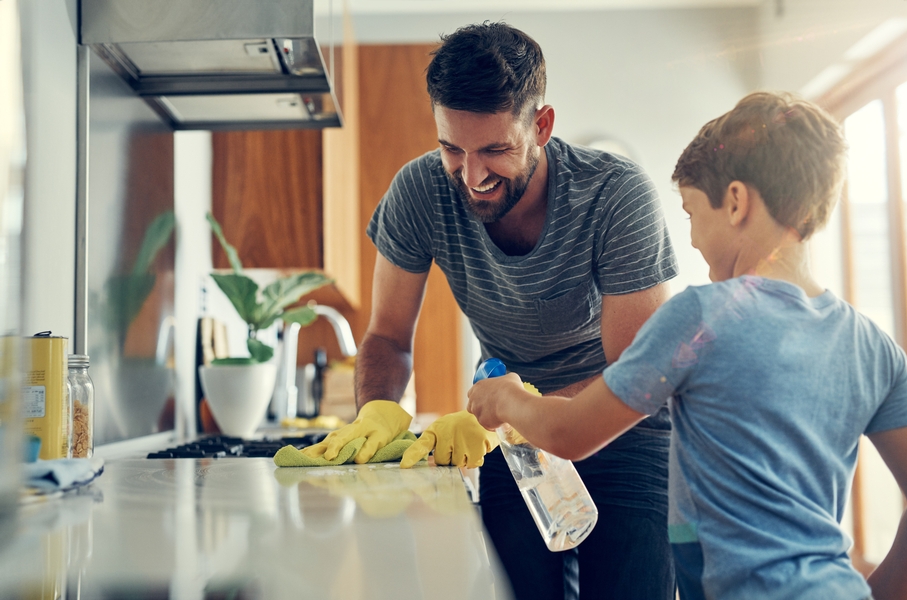Everyone in Denver Colorado and the world wants to do their best and take prudent measures to keep family members safe and sanitizing has become part of our daily lives. The coronavirus pandemic has placed a premium on disinfecting and cleaning. Think about the empty shelves in the grocery store where cleaning supplies typically are stocked.

The Center for Disease Control has issued guidelines for cleaning and disinfecting your home. A tool that may help keep your family safe is the sanitizing cycle found on many dishwashers, washing machines, and dryers. The ability to kill germs on clothes, cutlery, dishes, and glassware depends on water temperature. Appliances with sanitization cycles meeting National Sanitation Foundation standards are tested to ensure that they can eliminate potentially harmful allergens, some microorganisms and bacteria. Dishwashers that meet NSF standards have rinse water temperatures of at least 150 degrees, and the water temperature of washing machines that meet NSF standards must reach a minimum of 131 degrees. Concerning clothes dryers, the heat from a normal cycle is not sufficient to sanitize laundry. However, the sanitizing cycle increases dryer temperature to one that can kill germs or bacteria lingering on your laundry.
Sanitizing Best Practices
A best practice for protecting your family is to rinse and load dirty dishes into your dishwasher immediately. Leaving dirty dishes in a sink, countertop or elsewhere creates a ripe environment for the growth of E. coli, salmonella and listeria, and those harmful bacteria increase the longer dishes sit in an open-air environment. If dishes sit long enough, it may be difficult for a regular dishwasher to disinfect them.
There’s more incentive to be vigilant today. Before the outbreak of COVID-19, most appliance experts recommended sanitizing cycles on appliances as an effective tool to help allergy sufferers. According to the World Health Organization, the coronavirus can live on plastic and metal surfaces for several days, even though the CDC says the virus does not spread easily from contaminated surfaces. Why take the risk if you have appliances with sanitization cycles?
Other appliances that can help you keep your home safer include air purifiers, HEPA vacuum cleaners and steam convection ovens. These appliances are all designed to eliminate bacteria and sanitize hard-to-clean items.
These sanitization upgrades will continue to have benefits to your family during the cold and flu seasons to come as well.
If you are in the market for a new washer, dryer, dishwasher, or oven, and would like to know which appliances have NSF-compliant sanitation cycles, give us a call or contact us here to make a virtual or face-to-face appointment at to visit any of our showrooms.




















